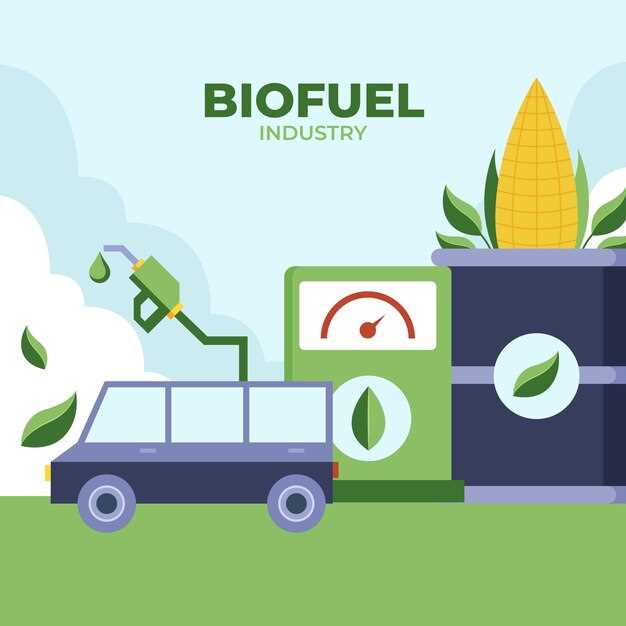
In the quest for a sustainable future, Toyota has emerged as a pioneer in fuel efficient engine technology. With a growing emphasis on environmental conservation and economic viability, the automotive giant has consistently pushed the boundaries to enhance the economy and efficiency of its vehicles. From hybrid innovations to cutting-edge combustion engines, Toyota’s commitment to reducing fuel consumption is evident in their extensive research and development efforts.
The evolution of Toyota’s engines reflects a strategic approach to address the challenges posed by increasing fuel prices and stringent emissions regulations. By integrating advanced technologies such as turbocharging, variable valve timing, and hybrid systems, Toyota has successfully improved the performance and economy of its engines, making them more appealing to eco-conscious consumers. These innovations not only contribute to better fuel efficiency but also reduce the overall carbon footprint of their vehicles.
As we delve deeper into Toyota’s innovative journey, it becomes clear that their approach to fuel efficient engine technology is not merely about compliance, but rather about setting new benchmarks in the automotive industry. Through relentless experimentation and a visionary outlook, Toyota continues to redefine what it means to drive smart, efficient, and environmentally friendly vehicles.
Hybrid Synergy Drive: Redefining Fuel Economy Standards

Toyota’s Hybrid Synergy Drive (HSD) represents a groundbreaking approach in the realm of fuel-efficient engines, cementing the company’s position as a leader in sustainable automotive technology. This innovative system integrates a conventional internal combustion engine with an electric motor, significantly enhancing fuel efficiency while reducing emissions.
The HSD technology operates on the principle of energy optimization. During low-speed driving conditions, the electric motor efficiently powers the vehicle, thereby conserving fuel. As the speed increases or when additional power is required, the gasoline engine seamlessly takes over, allowing for a smooth transition and maximizing energy usage.
One of the key advantages of Toyota’s Hybrid Synergy Drive is its ability to regenerate energy. Through regenerative braking, the vehicle captures kinetic energy that would otherwise be lost during deceleration. This energy is converted into electricity, stored in the battery, and utilized to power the electric motor, further enhancing the overall efficiency of the engine system.
Toyota’s commitment to continuous improvement in fuel technology is evident in the design of HSD. The system is engineered to operate at optimal efficiency in various driving conditions, ensuring that drivers experience both power and economy. By setting new standards in fuel economy, the Hybrid Synergy Drive has catalyzed a shift in the automotive industry, encouraging other manufacturers to explore hybrid technologies and reduce their carbon footprint.
As a testament to its success, the HSD has been incorporated into numerous Toyota models, from sedans to SUVs, demonstrating versatility and effectiveness across different vehicle categories. This innovation not only fulfills the growing demand for eco-friendly solutions but also captures the essence of Toyota’s vision for a sustainable automotive future.
The Role of Variable Valve Timing in Enhancing Engine Performance

Variable Valve Timing (VVT) is a pivotal innovation in engine technology that contributes significantly to improved engine performance and fuel economy. Toyota has been at the forefront of integrating this technology into its vehicles, enabling a balance between power and efficiency.
VVT works by adjusting the timing of the opening and closing of the engine’s valves according to driving conditions. This adaptability allows for optimal air-fuel mixing and combustion efficiency across various engine speeds and loads. As a result, Toyota vehicles equipped with VVT can deliver impressive performance without compromising on fuel consumption.
One of the key benefits of VVT is its ability to enhance torque at lower RPMs while maintaining high power output at higher RPMs. This means drivers can experience responsive acceleration with reduced fuel intake during everyday driving scenarios. Thus, VVT not only supports a dynamic driving experience but also contributes to reducing overall fuel consumption.
Additionally, Toyota’s implementation of VVT in its engines has led to lower emissions, making their vehicles environmentally friendly. By optimizing the timing of valve movements, Toyota ensures that the combustion process is cleaner, further promoting fuel economy and sustainability in the automotive sector.
In conclusion, Variable Valve Timing is a crucial component of Toyota’s strategy to enhance engine performance while maximizing fuel efficiency. This technology not only meets the demands of modern drivers seeking power and responsiveness but also aligns with global efforts to reduce environmental impact through better fuel economy.
Future Directions: Advancements in Hydrogen Fuel Cell Technology
Toyota has been a pioneering force in the development of hydrogen fuel cell technologies, emphasizing their potential to revolutionize the economy of transportation. As global demand for cleaner energy sources continues to rise, the company is committed to advancing its hydrogen strategies to create a sustainable future.
Innovative Fuel Cell Systems are at the forefront of Toyota’s research initiatives. The company is focusing on improving the efficiency and durability of fuel cells, ultimately reducing costs associated with hydrogen production and storage. These advancements are essential for making hydrogen-fueled vehicles more accessible to consumers, thereby enhancing the overall fuel economy.
Additionally, Toyota aims to expand its infrastructure for hydrogen refueling stations. By collaborating with governments and other industries, the company intends to build a robust network that supports the widespread adoption of hydrogen vehicles. This initiative is crucial for creating a reliable ecosystem in which consumers can confidently invest in and utilize hydrogen fuel cell technology.
In terms of future vehicle models, Toyota is exploring lighter materials and more compact designs that can improve the overall efficiency of hydrogen-powered cars. The integration of advanced technologies such as artificial intelligence and machine learning is also being investigated to optimize engine performance and enhance driving experience, while maintaining a commitment to sustainability and low emissions.
With these advancements, Toyota is poised to lead the shift towards a hydrogen-based economy, where the focus on environmentally friendly and efficient fuel options aligns with global sustainability goals. The future of transportation may very well hinge on the widespread acceptance and implementation of hydrogen fuel cell technologies, and Toyota is determined to stay at the helm of this progress.
